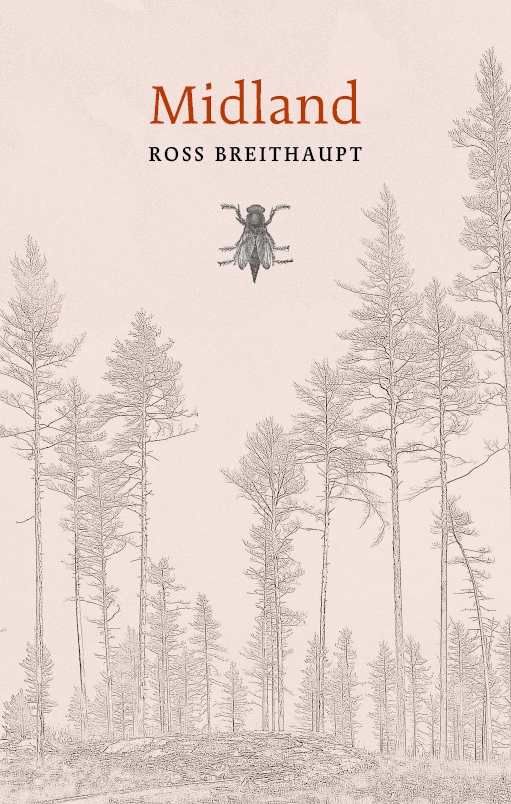Midland
Midland is a resounding, redemptive novel about healing from a tragedy.
In Ross Breithaupt’s measured novel Midland, a young man works to heal following his brother’s suicide.
In the 1980s, ten years after his brother jumped to his death in Lake Superior, Rory gets a job planting trees in the area. Rory’s grandmother, a veteran of the tree industry, worries about him, but her health is deteriorating. From the work camp, Rory writes letters to his family members, friends, and to his therapist—but also to his brother, as he attempts to understand the event. As the crew of tree workers races against deadlines and a fire heading their way, Rory’s nightmares and phobias challenge the love that’s kindling between him and the planters’ cook, Betina. Still, he chooses to accept her care, nurturing hope for a better future.
Rhythm plays a major role in Rory’s life and in the structure of the book. A bassist in a band before he leaves to plant trees, Rory’s hobby is making mix tapes. He finds and settles into his own rhythm, song by song; meanwhile, the narrative achieves a hard-fought flow, snippet by snippet. Clipped, percussive phrases are used to reflect Rory’s fluctuating state; he escapes from tragic memories into music.
Among the cast, Rory’s coworkers contribute comic relief via their quirks. Betina is lovely, but contends with her own past hurts; Rory’s nemesis is jealous of his connection to Betina. Rory himself is seen from varied angles, resulting in a complex sense of him as a solid figure who warrants empathy.
While Rory’s letters set an intimate, probing tone as they detail everyday life in camp, allowing for more expression than comes through his halting in-person conversations, there’s a disjointed back and forth in the narration in general, whose agitation is matched by the arduous work of tree planting. The perspective moves between Rory’s letters, the omniscient coverage of his grandmother’s story, and Rory’s dead brother’s voice, resulting in jagged sequences and a tumultuous pace. Rory’s brother’s voice is indicated internally by a bold font; he adds a mystical element to the story, as do its references to the Tibetan Book of the Dead. But in the midst of the book’s mishmash of threads, catastrophes serve to streamline the story toward a linear, cathartic climax whose events galvanize Rory’s energy and the narrative’s focus.
Resounding and redemptive, Midland is a novel whose lead character seeks a better life in the deep forests of the far north.
Reviewed by
Mari Carlson
Disclosure: This article is not an endorsement, but a review. The publisher of this book provided free copies of the book and paid a small fee to have their book reviewed by a professional reviewer. Foreword Reviews and Clarion Reviews make no guarantee that the publisher will receive a positive review. Foreword Magazine, Inc. is disclosing this in accordance with the Federal Trade Commission’s 16 CFR, Part 255.

